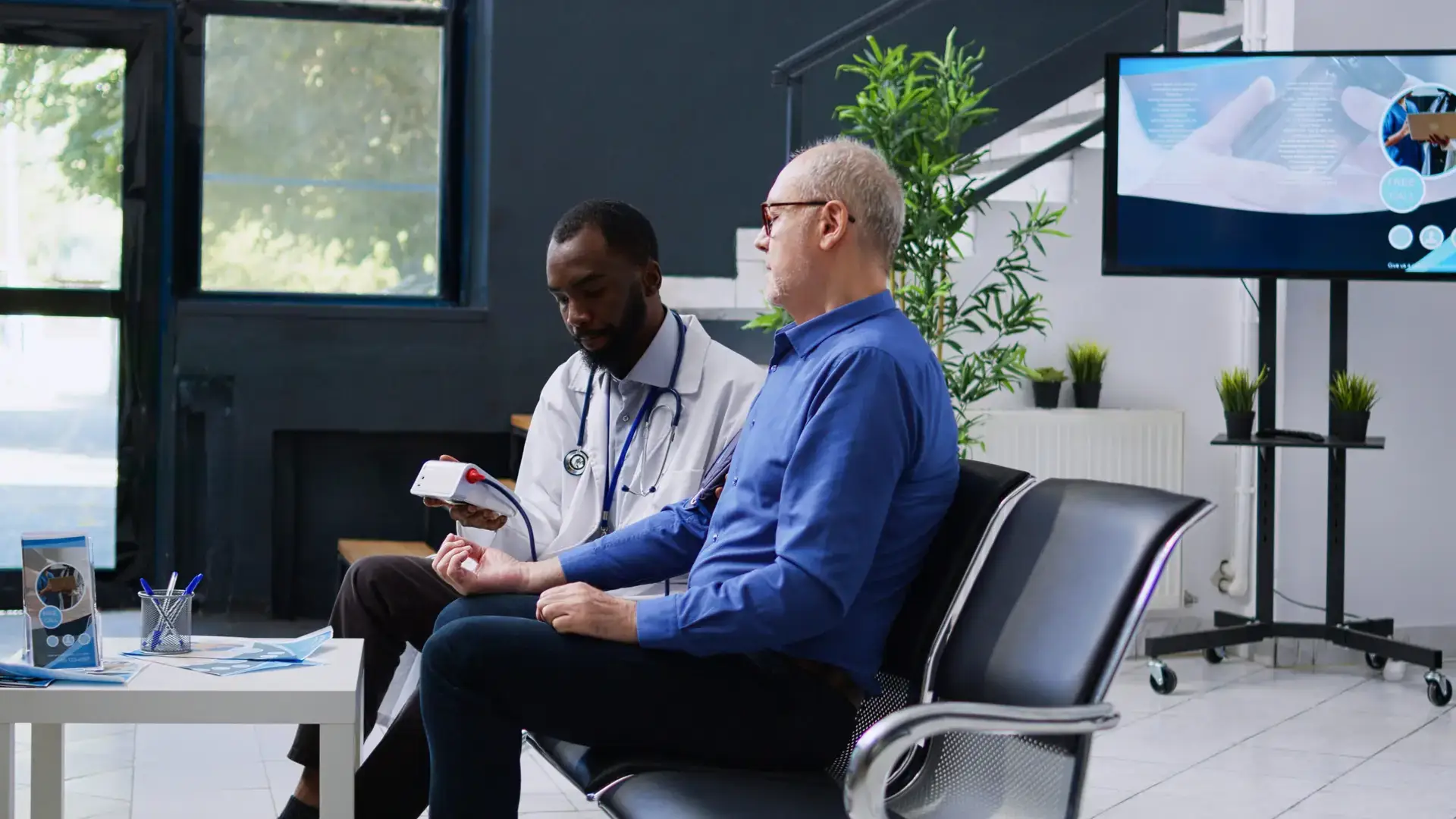Explore the essential risk factors for prostate cancer, with a focus on residents of Guildford and Windsor. Learn how age, genetics, ethnicity, lifestyle, and occupational exposures influence your risk, and discover practical steps
Prostate cancer remains one of the most significant health concerns for men in the UK, particularly as they age. For residents of Guildford and Windsor, understanding the unique and shared risk factors can empower individuals to take proactive steps towards safeguarding their health. Dr Christos Mikropoulos, with over 20 years of experience in urological health, provides an in-depth look at what contributes to prostate cancer risk, how these factors interact, and what can be done to reduce the likelihood of developing this disease.
The Prostate and Prostate Cancer: An Overview
The prostate is a small gland located just below the bladder, responsible for producing seminal fluid. As men grow older, the prostate can undergo changes, some of which may lead to cancer. Prostate cancer occurs when cells in the prostate start to grow uncontrollably. It is the most common cancer in men over 45 in the UK. Early detection is crucial, as most men diagnosed early can live long, healthy lives.
While the exact cause of prostate cancer is not fully understood, research has identified several risk factors that increase the likelihood of developing this condition. These risk factors are particularly relevant for men living in Guildford and Windsor, where awareness and regular screening can make a significant difference in outcomes.
Age: The Most Significant Risk Factor
Age is the strongest risk factor for prostate cancer. The likelihood of developing prostate cancer increases steadily as men get older. Most cases are diagnosed in men over 50, with the highest incidence between the ages of 70 and 74. For men under 50 without additional risk factors, the risk remains low, but it rises sharply with advancing age.
In Guildford and Windsor, where the population includes a significant proportion of older adults, it is especially important for men to be aware of the role age plays in prostate cancer risk. Regular check-ups and open communication with healthcare providers, such as Dr Christos Mikropoulos, can help ensure early detection and timely intervention.
Family History and Genetics: The Role of Inherited Risk
A family history of prostate cancer is a critical risk factor. Men with a close relative, such as a father or brother, who has had prostate cancer are significantly more likely to develop the disease themselves. The risk increases further if multiple family members are affected or if relatives were diagnosed at a younger age.
Genetic mutations, particularly in the BRCA1 and BRCA2 genes, can also elevate the risk. Men with these gene variants may face a higher likelihood of developing prostate cancer, sometimes at a younger age or in a more aggressive form. Inherited gene changes are estimated to account for approximately 10% of prostate cancer cases.
For residents of Guildford and Windsor, discussing family health history with relatives and sharing this information with medical professionals is vital. Genetic counselling and testing may be recommended for those with a strong family history or known genetic mutations.
Ethnicity: Understanding the Impact
Ethnicity plays a notable role in prostate cancer risk. Black men are at a significantly higher risk compared to other ethnic groups, with about 1 in 4 Black men in the UK developing prostate cancer in their lifetime. The reasons for this increased risk are not fully understood but may involve genetic factors.
Men of Asian descent, on the other hand, have a lower risk of developing prostate cancer. For those of mixed ethnicity, the risk profile is less clear, but it is thought to be higher than in the general population.
In diverse communities such as Guildford and Windsor, it is important for men of all backgrounds to be aware of their individual risk and to seek advice tailored to their specific circumstances.
Lifestyle and Environmental Factors
Although some risk factors cannot be changed, lifestyle and environmental exposures can influence prostate cancer risk. Maintaining a healthy weight, eating a balanced diet, and staying physically active are all associated with a lower risk of aggressive or advanced prostate cancer. Diets high in saturated fats, processed meats, and dairy products may increase risk, while those rich in fruits, vegetables, and whole grains may offer some protection.
Occupational exposure to certain chemicals, such as pesticides or substances encountered by firefighters and veterans, has been linked to a higher risk of prostate cancer. For men in Guildford and Windsor working in these professions, awareness and regular health monitoring are essential.
Smoking and excessive alcohol consumption are also associated with an increased risk of various cancers, including prostate cancer. Quitting smoking and moderating alcohol intake can contribute to overall health and potentially reduce cancer risk.
Prostate Cancer Risk Factors
The following table summarises the primary risk factors for prostate cancer, their impact, and relevance for residents of Guildford and Windsor:
| Risk Factor | Description | Impact on Risk | Relevance for Guildford & Windsor Residents |
|---|---|---|---|
| Age | Risk increases significantly after age 50 | Highest in older men | Large population of older adults; routine screening advised |
| Family History | Close relatives with prostate cancer increase risk | 2-3 times higher risk | Importance of sharing family history with GPs |
| Genetic Mutations | BRCA1, BRCA2, and other gene variants | Higher risk, earlier onset | Genetic counselling/testing may be recommended |
| Ethnicity | Black men at higher risk; Asian men at lower risk | 1 in 4 Black men affected | Diverse local communities; tailored risk assessment |
| Lifestyle Factors | Diet, exercise, obesity, smoking, alcohol | Modifiable risk | Promotion of healthy lifestyle choices |
| Occupational Exposures | Firefighters, veterans, farmers, chemical workers | Increased risk | Local workforce awareness and monitoring |
| Hormone Levels | High levels of certain hormones (e.g., IGF-1) | Increased risk | Routine blood tests and medical advice |
| Inflammation/Infections | Chronic prostatitis, sexually transmitted infections | Possible link | Importance of prompt treatment and regular check-ups |
| Height and Birth Weight | Taller adults and higher birth weight may have slightly increased risk | Slight increase | General awareness |
Recognising Symptoms and the Importance of Screening
Prostate cancer often develops without obvious symptoms in its early stages. When symptoms do appear, they may include changes in urination, discomfort in the lower back, pelvis, or hips, and unexplained weight loss. Because these signs can be subtle or mistaken for other conditions, regular screening is essential, especially for those at higher risk.
Screening typically involves a blood test known as the PSA test, which can help detect prostate problems early. Men over 50, or over 45 if they have additional risk factors, should discuss screening options with their GP or a specialist such as Dr Christos Mikropoulos. Early detection greatly improves the chances of successful treatment and long-term health.
Frequently Asked Questions
1. What are the main risk factors for prostate cancer?
The primary risk factors include age, family history, certain genetic mutations (such as BRCA1/BRCA2), ethnicity (especially in Black men), lifestyle factors like diet and exercise, and occupational exposure to certain chemicals. Understanding these can help guide decisions about screening and prevention.
2. At what age should men in Guildford and Windsor start prostate cancer screening?
Men are generally advised to start discussing screening from the age of 50. However, if you have a family history or are part of a higher-risk group, such as Black men or those with known genetic mutations, it is recommended to speak with a specialist like Dr Mikropoulos from age 45.
3. How does family history influence prostate cancer risk?
Having a close relative (father, brother, or son) with prostate cancer can double or triple your risk. The risk increases further if multiple family members are affected or were diagnosed at a younger age.
4. Are Black men in the UK at greater risk for prostate cancer?
Yes. Around 1 in 4 Black men in the UK will develop prostate cancer in their lifetime, a significantly higher rate than other ethnic groups. The exact cause is unclear, but genetics is believed to play a major role.
5. Can prostate cancer be linked to lifestyle choices?
Yes. Diets high in saturated fats, processed meats, and dairy products may increase risk, while healthy habits like a balanced diet, regular exercise, and avoiding smoking or heavy alcohol use may help reduce it.
6. Is there a genetic test available to assess prostate cancer risk?
Yes. Men with a strong family history or known gene mutations (e.g., BRCA1/2) may be referred for genetic counselling and testing. Dr Mikropoulos can guide you through whether this is suitable for your situation
7. What are the early symptoms of prostate cancer?
Early-stage prostate cancer often has no symptoms. Later signs may include changes in urination, blood in urine or semen, discomfort in the pelvic area, and unexplained weight loss. However, symptoms vary and may be linked to other conditions.
8. How common is prostate cancer in Guildford and Windsor?
While regional statistics vary, prostate cancer is the most common cancer in men over 45 across the UK. Given the ageing populations in Guildford and Windsor, local awareness and screening are crucial.
9. Are certain occupations linked to a higher prostate cancer risk?
Yes. Men who work in firefighting, farming, or are exposed to chemicals like pesticides or industrial materials may face an increased risk. Occupational health awareness and regular check-ups are important.
10. How can I reduce my prostate cancer risk?
While some risk factors like age and genetics cannot be changed, adopting a healthy lifestyle, maintaining a healthy weight, avoiding smoking, moderating alcohol, and attending regular screenings can help reduce your overall risk.
Taking Action: Steps for Residents of Guildford and Windsor
Understanding your personal risk is the first step towards protecting your health. Residents of Guildford and Windsor are encouraged to:
Discuss family health history with relatives and share this information with healthcare providers
Attend regular check-ups, especially from age 50 onwards or earlier if at higher risk
Adopt a healthy lifestyle, including balanced nutrition and regular physical activity
Be aware of occupational hazards and seek medical advice if exposed to chemicals
Monitor for any changes in urinary habits or unexplained symptoms and seek prompt medical attention
Dr Christos Mikropoulos, based in the region, is dedicated to supporting men in understanding and managing their prostate cancer risk. With extensive experience and a commitment to patient-centred care, Dr Mikropoulos provides expert guidance tailored to each individual’s needs.
Prostate cancer is a complex disease influenced by a combination of age, genetics, ethnicity, lifestyle, and environmental exposures. For men in Guildford and Windsor, being informed about these risk factors and taking proactive steps can make a significant difference in outcomes. Regular screening, healthy living, and open communication with healthcare professionals are key to early detection and effective management.
For further advice or to book a consultation, visit Dr Christos Mikropoulos’s website, where you can access expert support and resources dedicated to men’s health.
This blog is intended for informational purposes and should not replace professional medical advice. If you have concerns about your prostate health, consult a qualified healthcare provider.


